

UNC-affiliated company Seal the Seasons creates new frozen food markets for farmers to sell locally grown fruits and vegetables to people in their region of the country. How has the company rapidly grown from a campus-based venture into the top locally grown food brand in the country?
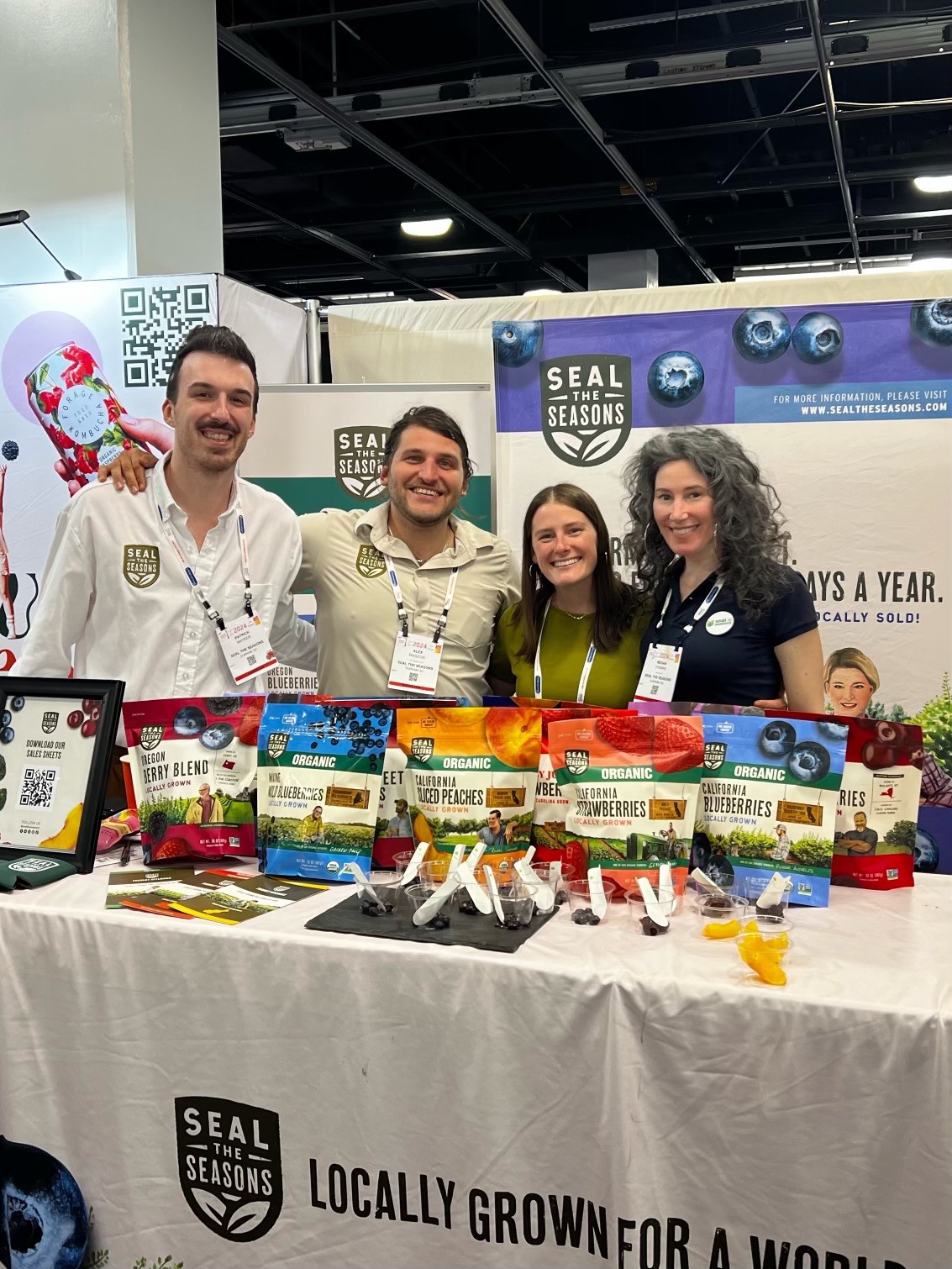
Special Event: Register to attend a Founders Forum talk featuring Seal the Seasons co-founder and CEO Patrick Mateer and Alice Ammerman, founder and CEO of Equiti Foods, who will share their entrepreneurial highs, lows and lessons learned. The talk is hosted by Innovate Carolina and will be held at the Innovate Carolina Junction in downtown Chapel Hill on April 19.
The most influential class that Seal the Seasons co-founder and CEO Patrick Mateer took as a UNC-Chapel Hill student didn’t meet in a classroom. It wasn’t taught by a professor. In fact, the class wasn’t a university course at all. Every Saturday, Mateer immersed himself in his own entrepreneurial learning space: the Carrboro Farmers’ Market located just minutes from campus. “Carolina had a really entrepreneurial vibe, and I was working at the farmers market and seeing the incredible demand from people who wanted to know where their food comes from,” said Mateer. “I was also helping with a food waste diversion program, and at the end of the farmers market, we’d collect the potential food waste and bring it to a low-income community center for free distribution.” Mateer’s experience working at the farmers market—and the connection formed in his entrepreneurially wired mind between locally grown food and food waste—became an impetus for launching startup company Seal the Seasons in 2015. Nearly a decade later, the company is the No. 1 locally grown food brand in the U.S.
“Farmers would have extra bins of tomatoes or strawberries left over, and they needed a place for that produce to go because it wouldn’t last until next Saturday’s market,” he said. “We saw an opportunity to preserve that extra crop by freezing it and giving consumers access to it year-round rather than just the four-week strawberry season. The company was a way to facilitate that win-win for farmers and consumers, and it evolved into so much more.”


Today, Seal the Season distributes its flash-frozen produce to 6,000 retail locations across 36 states. North Carolinians can find it in many familiar grocery stores—Harris Teeter, Food Lion, Lowes Foods, Fresh Market, IGA and others. Across the country, Americans can buy it in larger regional chains like Publix, national stores like Whole Foods, and numerous grocers with local footprints. In 2023, Seal the Seasons’ grocery story customer count and dollar sales both grew by approximately 20 percent year-over-year.
“Our distribution strategy is to be locally grown, locally frozen, locally sold,” said Mateer, who said the company sources produce and operates across six U.S. regions (Mid-Atlantic, Midwest, Northeast, Pacific Northwest, Pacific Southwest and Southeast), and plans to begin operating in Texas “In those regions we buy the product, freeze it, and only distribute it within those areas.” When customers in the Carolinas open the grocery freezer, they see North Carolina blueberries and strawberries and South Carolina peaches. Michigan and Wisconsin shoppers buy cherries, sweet corn and peas from the Midwest. And west coast consumers enjoy Oregon blackberries and California peaches.
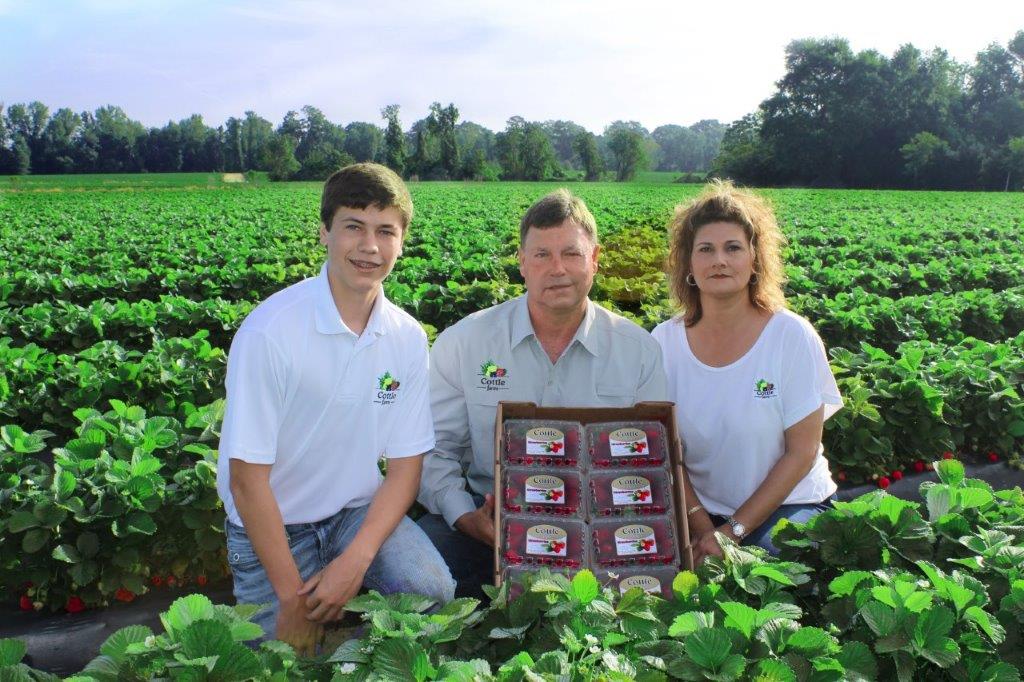
“We’re making locally grown food easy for our grocery store partners to merchandise,” said Mateer. “And for end consumers, we’re making a higher quality, locally grown product available that has a story to it, has a lower carbon footprint and tastes better than the other ‘cardboardy’ frozen food on the shelf.”
Seal the Seasons uses flash freezing technology—a frigid blast of air delivered to fruit and vegetables as they travel down a slow-moving conveyer belt—that freezes individual pieces of produce within 24 hours of being harvested.
Alex Piasecki, co-founder and chief operating officer, said the company works with local farmers to set up flash-freezing facilities on farms where the produce is washed, sorted, frozen and packaged. Proximity to the fields create a “quick turn from being picked to being frozen.” The facilities are hubs that serve individual farmers who host the cold warehouses and also other farmers in wider local regions who bring their produce to the hub farm for production. The hub model creates a differentiator for small U.S. farmers to compete in the U.S. retail market dominated by more cheaply produced imported frozen fruit.
“We harness flash-freezing technology on farms across the U.S. to create local supply chains to help farmers sell the produce they’re growing in their region,” said Piasecki. “We created a hub-and-spoke model that brings together the hub farmer and other farmers in their region to create local impact.”
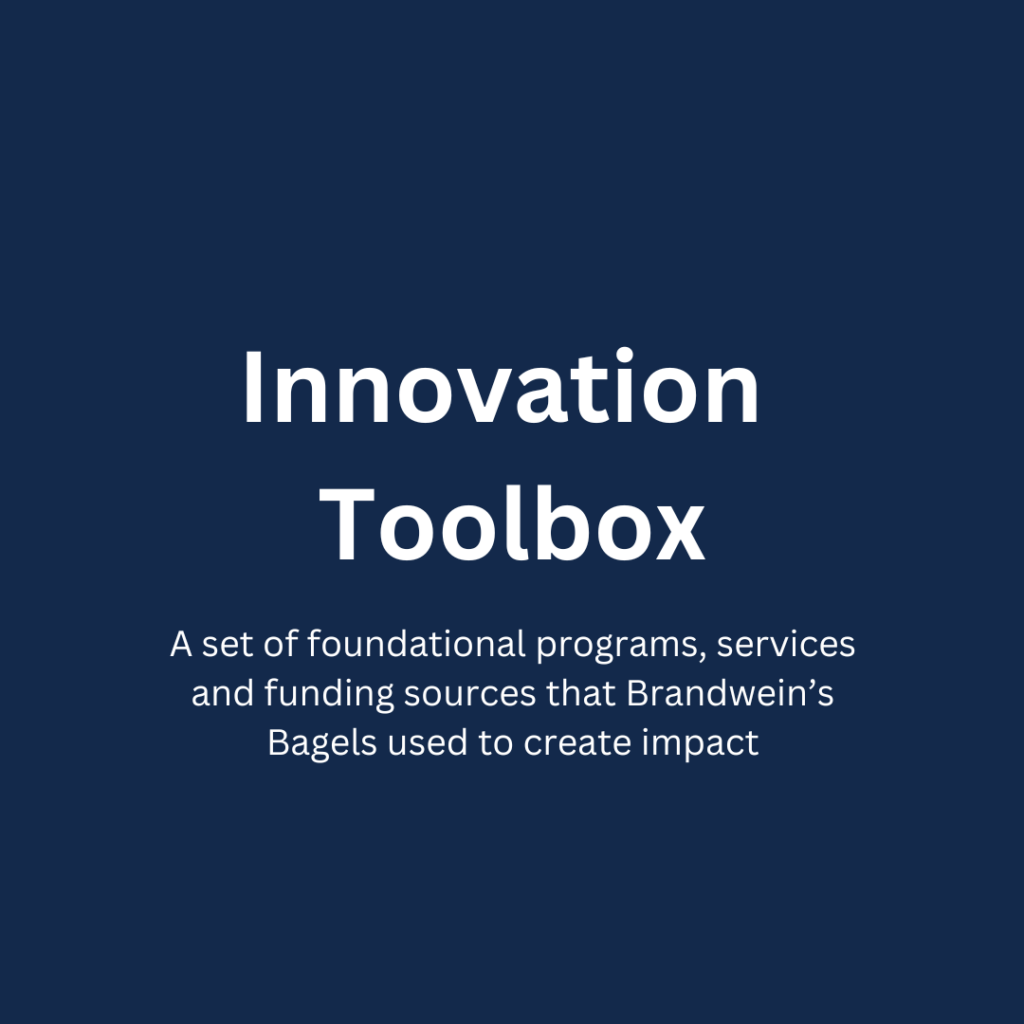
Seal the Seasons works with a network of local farmers across the country and contributes more than 90 percent of its costs to family farms and suppliers in local communities. One aim is to help small farms diversify sales. “We’re creating a larger market for local farmers by opening the frozen channel for them,” he said. “Traditionally, many small farms may only have access to the fresh produce channel, the community-supported agriculture market or the farmers market channel. We’re creating another channel for their businesses, which is good for farmers and the economy.”
Piasecki said both large and small farms benefit. “For some of our hub farms, we’re the main part of their frozen business and work as their core partner,” he said. “We help them source more produce from their farm and surrounding farms, while creating an expanding frozen business unit that didn’t exist.”


Mateer points to T.C. Smith Produce—a fourth-generation farm owned by Curtis Smith and located in Seven Springs, NC—as an example of a hub farm that is thriving alongside Seal the Seasons. “The first year we partnered with Curtis at T.C. Smith Produce, we purchased about 3,000 pounds of strawberries. Now, across the state, we purchase over 300,000 pounds of strawberries per year. At the same time, Curtis’s volume has grown ten times.”
For small farmers, Seal the Seasons is a diversified sales channel or an option for when the unexpected occurs, much like an insurance policy. “If Saturday farmers markets are big for them, they still have Monday, Tuesday, Wednesday and Thursday to think about,” said Piasecki. “Or if there is severe weather, the fruit won’t last very long, so farmers want to capture whatever they can. While we don’t pay as much as farmers markets, we’re flexible and accept a wider array of products.”
Seal the Seasons gives farmers a way to get a reliable price if they have short-term excess crop or encounter market fluctuations. Mateer said the company operates as a trusted partner to farms like Lineberger’s Maple Springs Farm in Dallas, NC. “We’re like an insurance policy they can turn to when they have a huge bumper crop of strawberries one week or bunch of blackberries during the summer when the fresh market is down,” said Mateer. “If Mexico just started blackberry production and there’s a lot of new crop on the market internationally—and the price they’re getting for blackberries this week has shifted way lower than the price they were getting last week—they can switch over to Seal the Seasons and still get a reliable price.”
“Most farmers ride the waves of price increases and decreases over the spring and summer, and not many have customers who are transparent and will pay a certain price at a certain time,” said Piasecki. “For farmers who almost look at us as a type of crop insurance, we’re flexible, transparent and consistent—and they can rely on us to pay a fair price.”
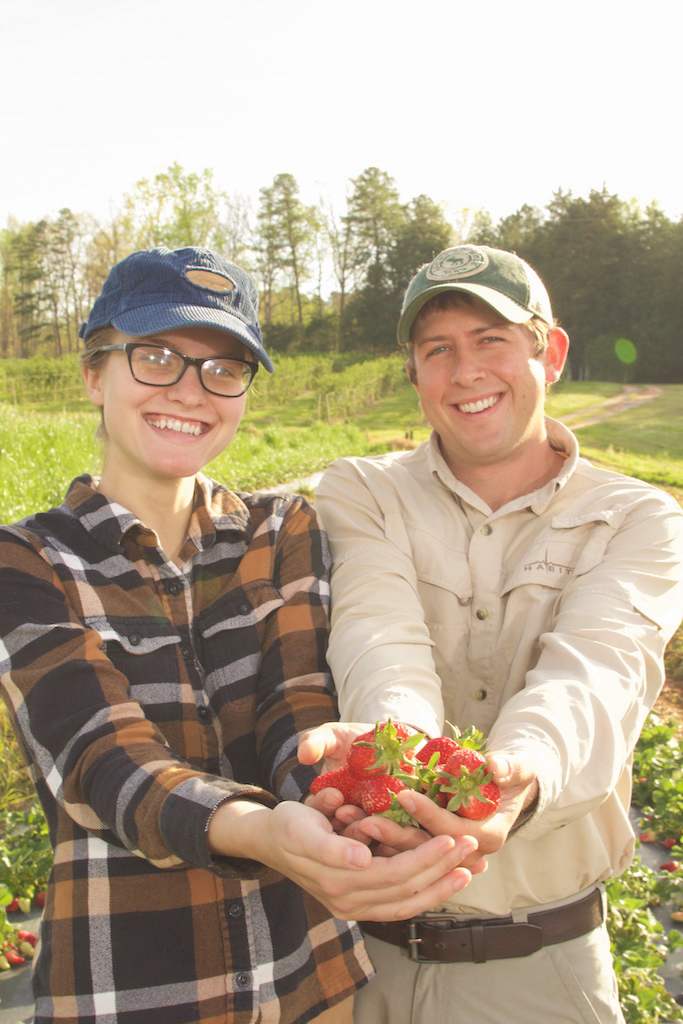
Initial funding came from small awards and competitions, such as the Carolina Challenge at UNC-Chapel Hill’s Kenan-Flagler Business School and a business award competition at NC State University. “We won $80,000 in small business competitions and grants—a lot of $2,000 to $3,000 awards—and those gave us confidence to launch the company and get the first product on the shelf,” said Mateer.
As the team began measuring sales data, it soon attracted angel investments. “We worked with angel investors who supported locally grown food, were part of the Slow Money NC network and believed in our vision to become a national brand,” said Mateer.
The founders found opportunities to work with venture capitalists, but also learned early lessons. “Coming out of college, we didn’t understand the venture capital community as much as we should have,” said Mateer. “When it comes to fundraising, we’ve learned it’s all about finding and presenting your story to the people who actually invest in what you do.”
Mateer said he encountered investors who touted food and beverage investments, but when he talked with them, he found they only invested in the beverage sub-category. He met others whose websites claimed they invest in plant-based products, but through conversations, he discovered they only invest in meat replacements. “There’s no point in pitching the wrong audience,” he said.
In total, Seal the Seasons has raised $10 million in funding. “The largest individual round we raised was $2.5 million because we raise money for very specific purposes.” The $2.5 million Series A round was led by VentureSouth in 2001. In 2024, the company raised an addition $1 million in a round led by accelerator FoodFutureCo and VentureSouth to expand product offerings.
As a student-launched venture at UNC-Chapel Hill, Seal the Season first worked in the CUBE startup accelerator offices in the UNC Campus Y building. The next summer, the team moved to Launch Chapel Hill, a startup accelerator formed via a partnership between UNC-Chapel Hill, the Town of Chapel Hill and Orange County. Early on, the team needed office space and a manufacturing facility.
With an expanding business and a need to focus beyond manufacturing, the team made a strategic shift. “By moving the manufacturing from our own facility to our growers, it brings the agricultural community more margin, makes us all a better profit, and lets us all focus on what we’re good at. The farms do all the growing and freezing, and we can focus all of our time on selling, distribution and marketing.”
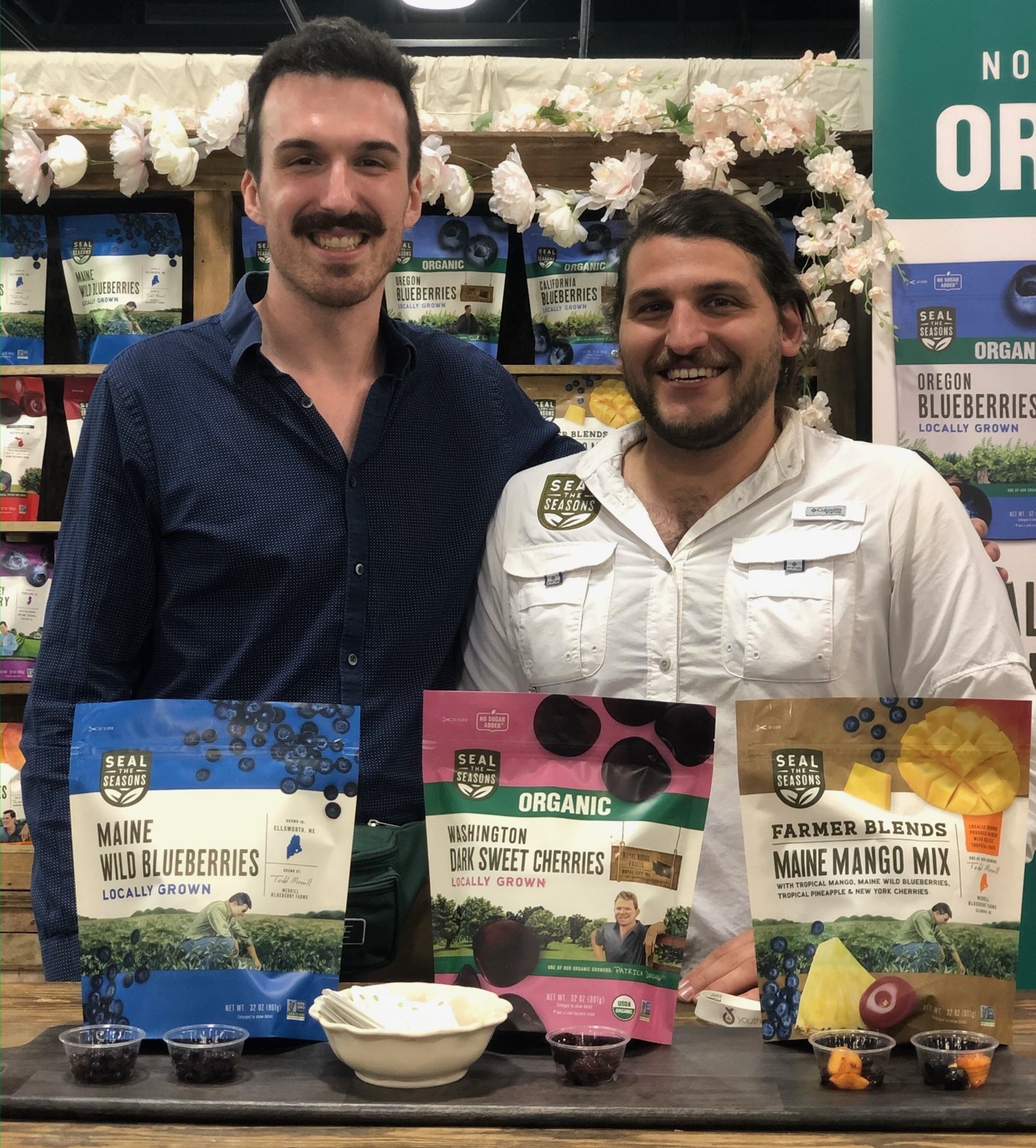
After Launch Chapel Hill, the company moved into a downtown Chapel Hill office, remaining close to the university’s entrepreneurial community. But when displaced by a large biotech firm that moved into its building in early 2020, the company moved to a small office in Durham. Although the company maintains its Durham headquarters, a growing and dispersed staff led it to shift to a primarily virtual mode.
Seal the Seasons began as a four-person team comprised of Mateer, Piasecki, fellow Carolina classmate Will Chapman and Daniella Uslan from the UNC Center for Health Promotion and Disease Prevention. Uslan enrolled in professor Alice Ammerman’s public health entrepreneurship class, where a group project inspired her to explore a venture focused on food waste and access. Upon taking the Startup UNC class, Uslan teamed up with Mateer, Chapman and Piasecki to turn the concept into a company.
With manufacturing initially managed internally, early team members focused heavily on production. “But once we shifted manufacturing to the growers, it allowed us to focus our talent in different areas,” said Mateer, who noted that Seal the Seasons now has six full-time employees and several part-time contractors. “We still have a core operations team because we manage over 10 different facilities that we partner with to freeze the product, but our team now focuses most on sales, distribution, finance, marketing and brand management.”
Mateer said the company shifted its sales strategy from an internal to a third-party model. “We’ve partnered with incredible brokers across the country who act as a third-party salesforce and are paid a straight commission from our sales. Those brokers work in grocery store communities and sometimes have offices at grocery headquarters. We’ve found that having an on-the-ground presence and building tight relationships works better for the grocers. It’s the way we need to service them.”
Much of Mateer’s entrepreneurial learning came from immersing himself in UNC-affiliated incubators and accelerators. “We participated in Launch Chapel Hill and CUBE, which offered workshops, consumer discovery seminars, and educational opportunities that were extremely helpful,” he said. He also advises young founders to spend more time learning directly from customers. “When I talk to entrepreneurs at Carolina, my advice is to start selling your product and interacting with customers,” he said. “Your customers will teach you the most about what you’re doing, and their feedback is most important.”
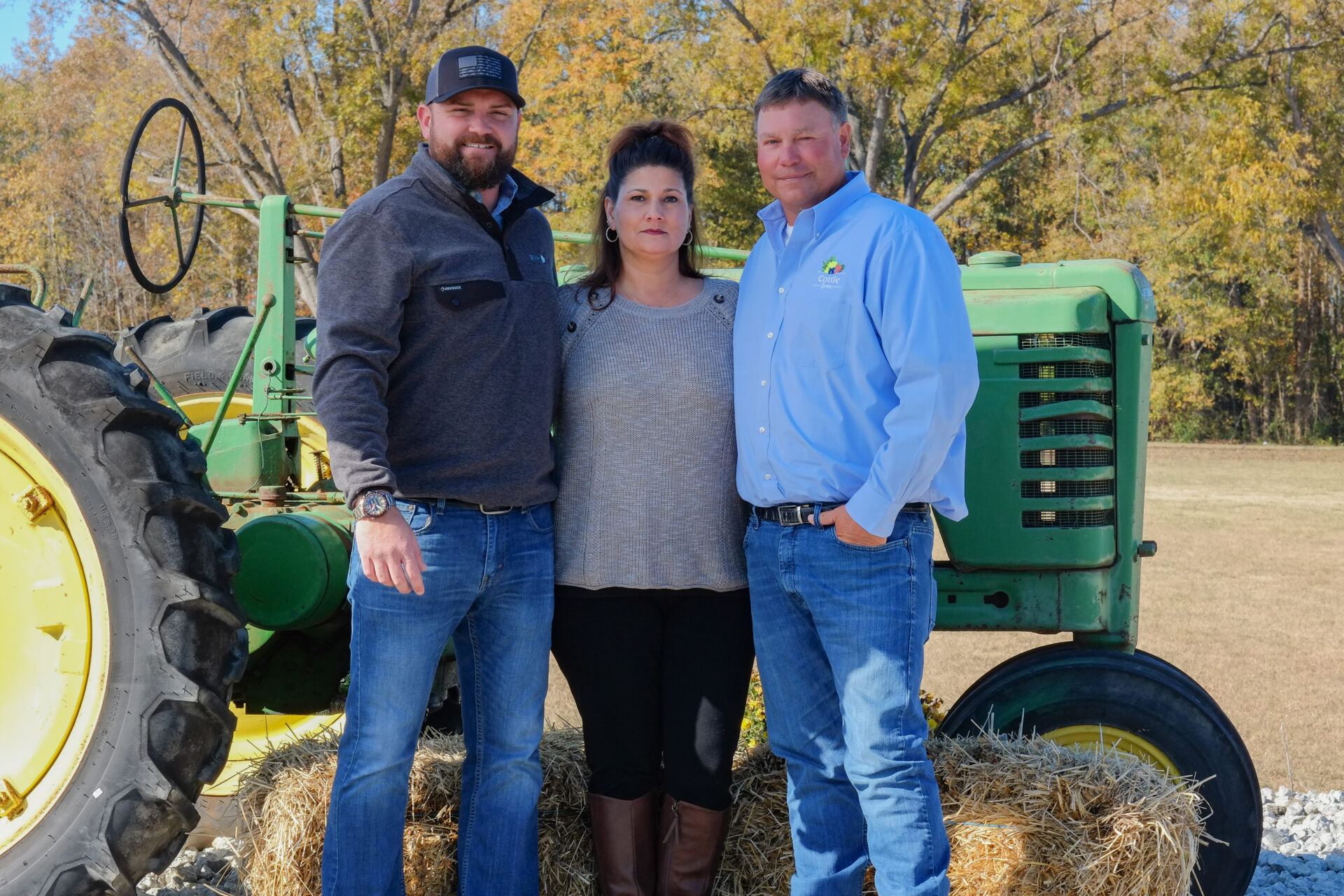
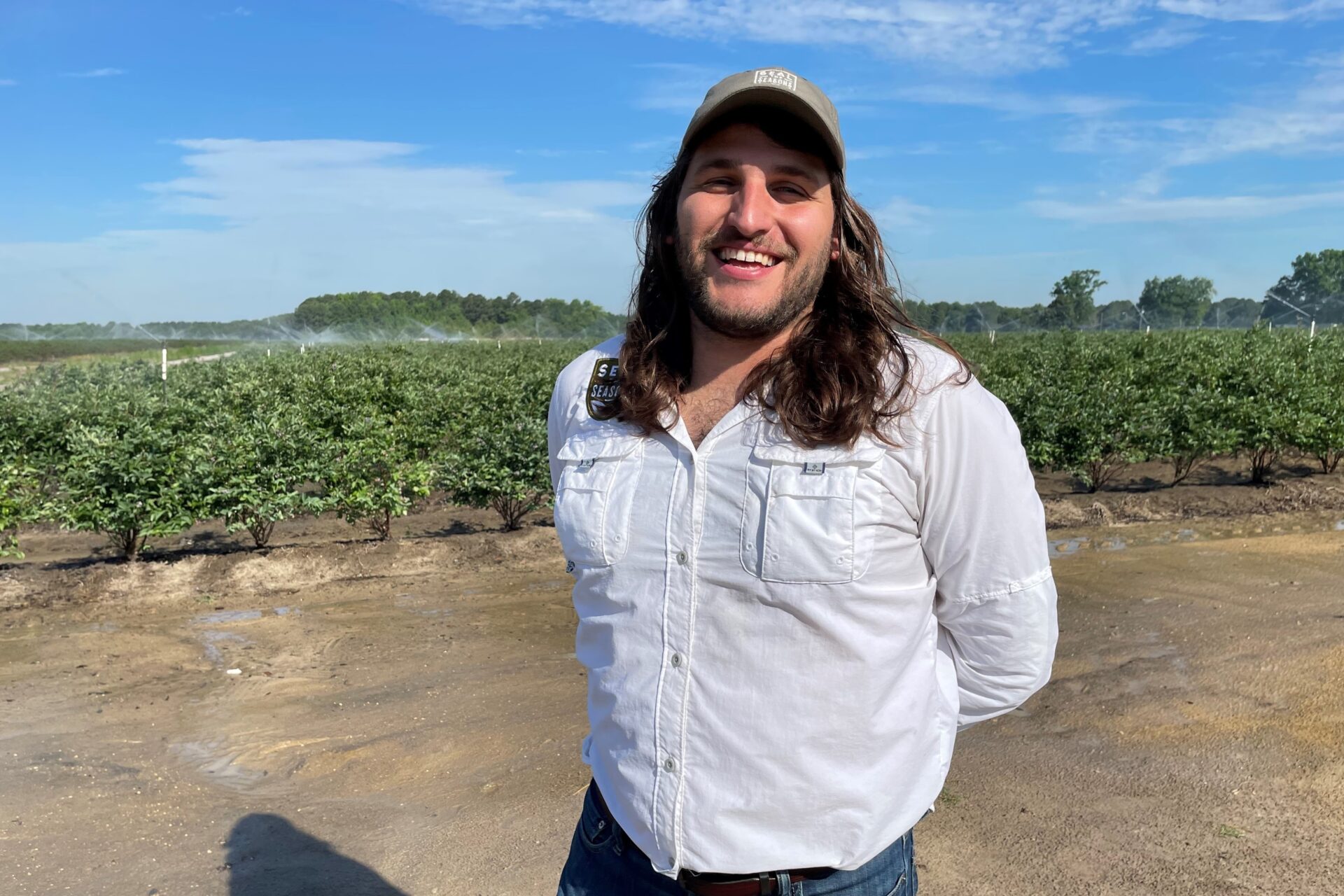
Seeking customer feedback is still a regular practice for Piasecki and Mateer. Piasecki points to the 2023 launch of the company’s Smoothie Kit as one example of an innovation that arose from listening to customers. “A lot of people don’t know what to do with frozen fruit or how to integrate it into their diet, but they love the idea of a smoothie,” he said. “The kit removes all the steps of making a smoothie and helps people consume local fruits and vegetables in a new way.”
Mateer says the company continues to learn how to not only create good for consumers and farmers, but also the planet. “We had a big transition in our West Coast business to add more certified USDA organic and certified local product—and to bring together organic and locally grown options,” he said. The company will launch regeneratively grown organic local products within the next two years. “We want to push the envelope on how agriculture can sequester greenhouse gases and be part of a climate solution,” he said. “That way, agriculture doesn’t just create a carbon footprint by running tractors or shipping food. It can reduce the carbon footprint, too.”
Want to learn about UNC-affiliated startups that turn research and ideas into impact?
Check out more stories from Innovate Carolina’s Idea-to-Impact series. You’ll discover insights from inventors and entrepreneurs who are leading startup companies and innovative ventures that create human and economic impact in North Carolina and beyond.